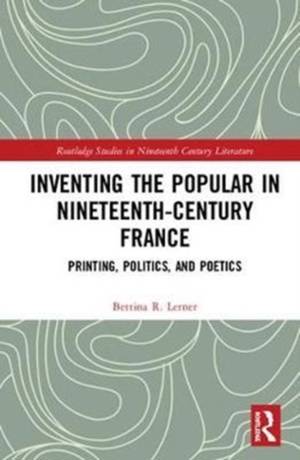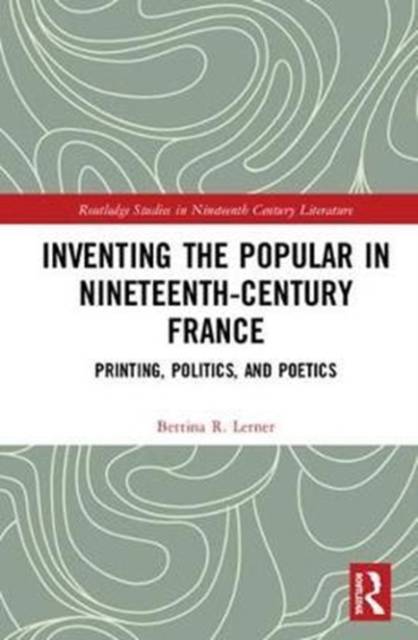
- Retrait gratuit dans votre magasin Club
- 7.000.000 titres dans notre catalogue
- Payer en toute sécurité
- Toujours un magasin près de chez vous
- Retrait gratuit dans votre magasin Club
- 7.000.000 titres dans notre catalogue
- Payer en toute sécurité
- Toujours un magasin près de chez vous
Description
Inventing the Popular: Working-Class Literature and Culture in Nineteenth-Century France explores texts written, published and disseminated by a politically and socially active group of working-class writers during the first half of the nineteenth century. Through a network of exchanges featuring newspapers, poems and prose fiction, these writers embraced a vision of popular culture that represented a clear departure from more traditional oral and printed forms of popular expression; at the same time, their writing strategically resisted nascent forms of mass culture, including the daily press and the serial novel. Coming into writing at a time when Romanticism had expanded beyond the borders of the lyric je, these poets explored the social dimensions of connectivity and social relation finding interlocutors and supporters in the likes of Pierre-Jean de Béranger, Alphonse de Lamartine, George Sand and Eugène Sue. The relationships they developed among themselves and the major figures of an increasingly socially-oriented Romanticism were as rich with emancipatory promise as well as with reactionary temptation. They constitute an extensive archive of everyday life and utopian anticipation that reframe social romanticism as a revelatory if problematic model of engaged writing.
Spécifications
Parties prenantes
- Auteur(s) :
- Editeur:
Contenu
- Nombre de pages :
- 190
- Langue:
- Anglais
- Collection :
Caractéristiques
- EAN:
- 9781409436768
- Date de parution :
- 14-02-18
- Format:
- Livre relié
- Format numérique:
- Genaaid
- Dimensions :
- 155 mm x 239 mm
- Poids :
- 408 g







